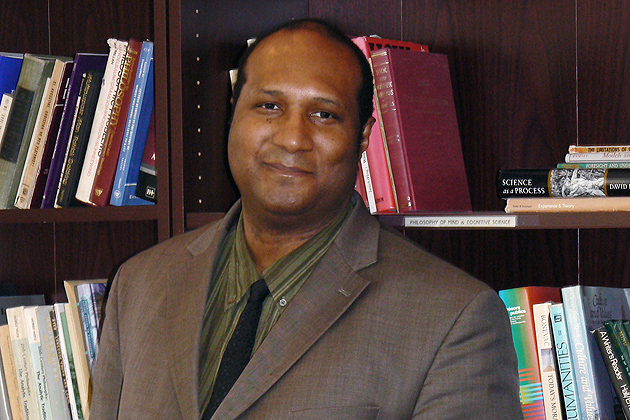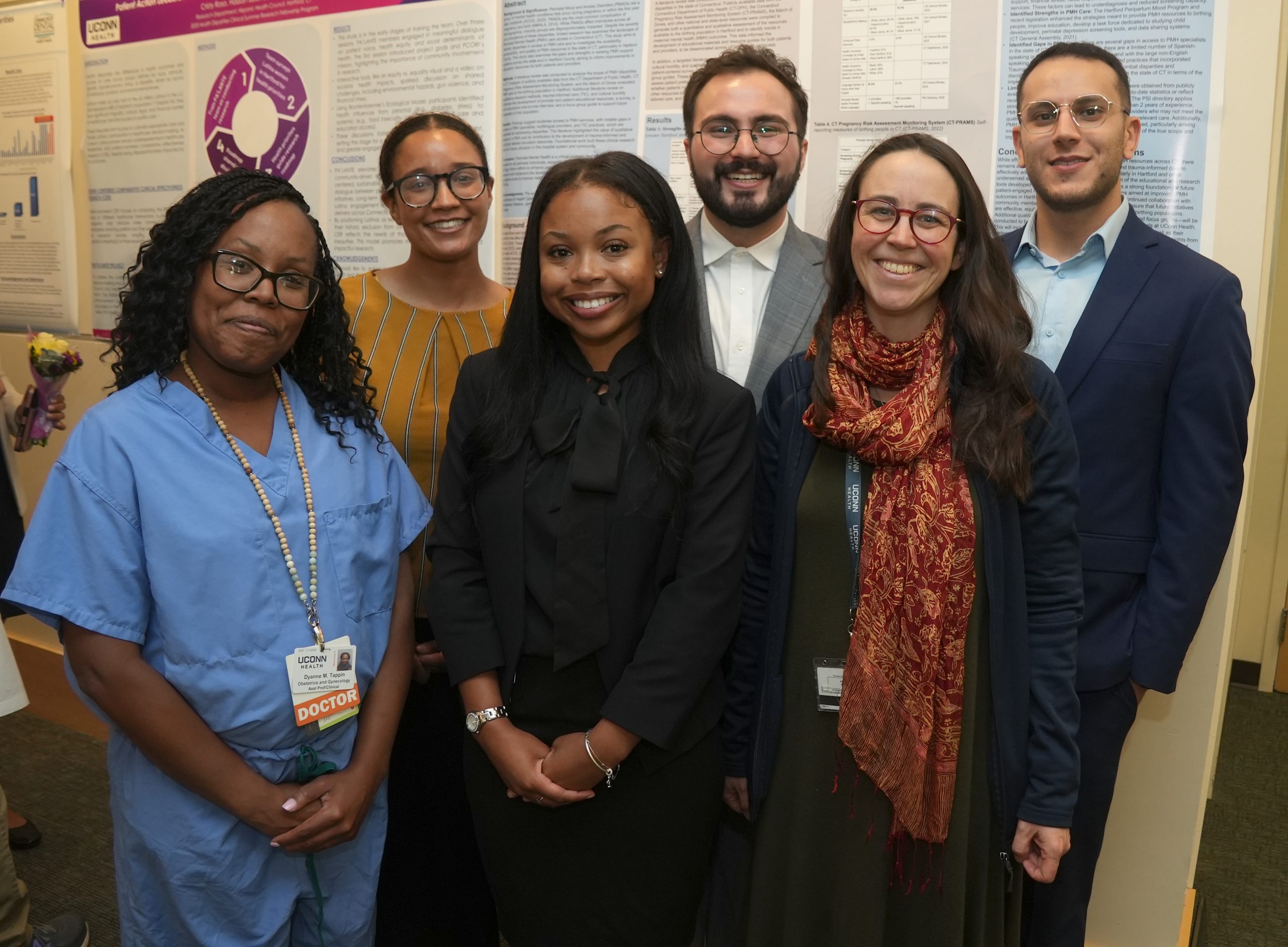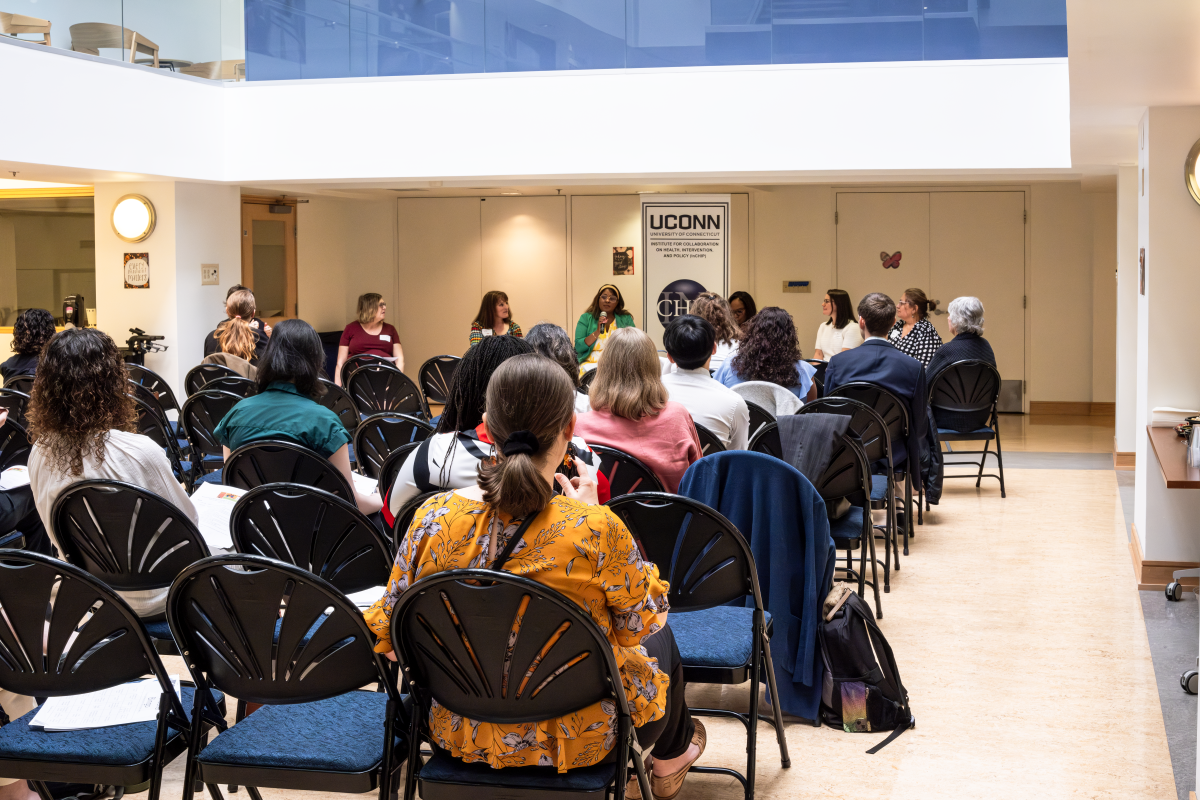
For a long time, Lewis Gordon did not describe himself as a philosopher. Instead, he thought of himself as a writer working out the answers to problems through his writing.
“For me every true thinker is always a thinker and something else,” says Gordon, who will arrive in Storrs next summer from Temple University, where he is a renowned philosophy professor and director of both the Center for Afro-Jewish Studies and the Institute for the Study of Race and Social Thought.
He will join the UConn faculty as part of the University’s initiative to hire up to 500 new professors over four years, to strengthen the academic core.
“To do anything at all, you have to enter it from somewhere,” notes Gordon. “Somewhere could be as a musician, physician, lawyer, artist, social scientist, a religious leader; whatever it may be is the somewhere. That somewhere orients you but it doesn’t have to constrain you or have you bonded in an enslaved form of knowledge. That is why a lot of my work is also part of a decolonization of knowledge.”
Gordon has written extensively about what he has termed “disciplinary decadence,” when the focus on specific disciplines turns intellectuals away from reality. He says that he tries to bring “humility to philosophy, to be willing to go beyond philosophy for the sake of reality.”
“Everything I write about takes reality seriously,” he insists. “One of the things that has happened in philosophy particularly, and other areas of scholarship, is there’s almost hostility to the idea of reality.”
Yet for Gordon, reality is a freeing or what he calls “an emancipatory idea.” Reality teaches that when we go beyond self-attachment and find ourselves in relations with others, the challenge is to “learn our actual limitations,” he says, adding, “sadly, often the limitations turn out to be ourselves.”
Gordon, who earned his doctoral degree at Yale, says that living in dynamic relationships with other people and things necessarily affects how human beings understand or interpret the evolving dimensions of the relation that, in turn, constantly changes relationships. That view is a core tenet of phenomenology, or the process of developing an awareness that leads to establishing a philosophy.
A common link to Gordon’s work is to the question of what it means to be a human being. He says that being human “is always a struggle with possibility,” noting that as human beings we all have an “ironic relationship to reality.”
“We are constantly struggling to complete ourselves,” Gordon says. “But if that were to be achieved, everything would be over. We are committed to our freedom, which is a condition of our incompleteness, but recognizing our incompleteness pushes us to attempt our completeness.
“These ironic ways of being a human being,” he continues, “also make us neurotic creatures. It is through us, or anything like us, that we are able to raise questions of what is missing. The fact that we can always be something that is missing, that we can orient ourselves in such a way as to see what is missing, is one of the more powerful elements of how we are always able to grow from incompleteness.”
He notes that one of the ongoing paradoxes in scientific endeavors and other intellectual pursuits is the effort to resolve contradictions.
“We try to eliminate contradictions, but it’s precisely because the contradictions were identified that we started the projects to begin with,” says Gordon. “For so many, contradictions are sources of problems; for me contradictions are invitations, openings to learn more about the world. I see contradictions as opportunities.”
Gordon maintains there are three dynamics in play when thinking about the questions he considers: What is a human being? What is freedom? What are the conditions through which we can justify what we can say about either?
“The tricky thing when we are looking at a problem is that problems often have ironic features to them when we begin to shift our orientation,” he says. “What we first might look at as simple just might have different issues emerge as a more complex one and open up new areas of knowledge.”
He is looking forward to joining the faculty in the Institute for African American Studies, which engages such questions in the study of the African Diaspora, and the Department of Philosophy in the College of Liberal Arts and Sciences, which includes noted logicians such as professors JC Beall, David Ripley, and Marcus Rossberg.
“UConn has a brilliant group of logicians, some of whom are the best in their areas of research,” he says. “They’re willing to take the risk of the logic beyond logic.”



